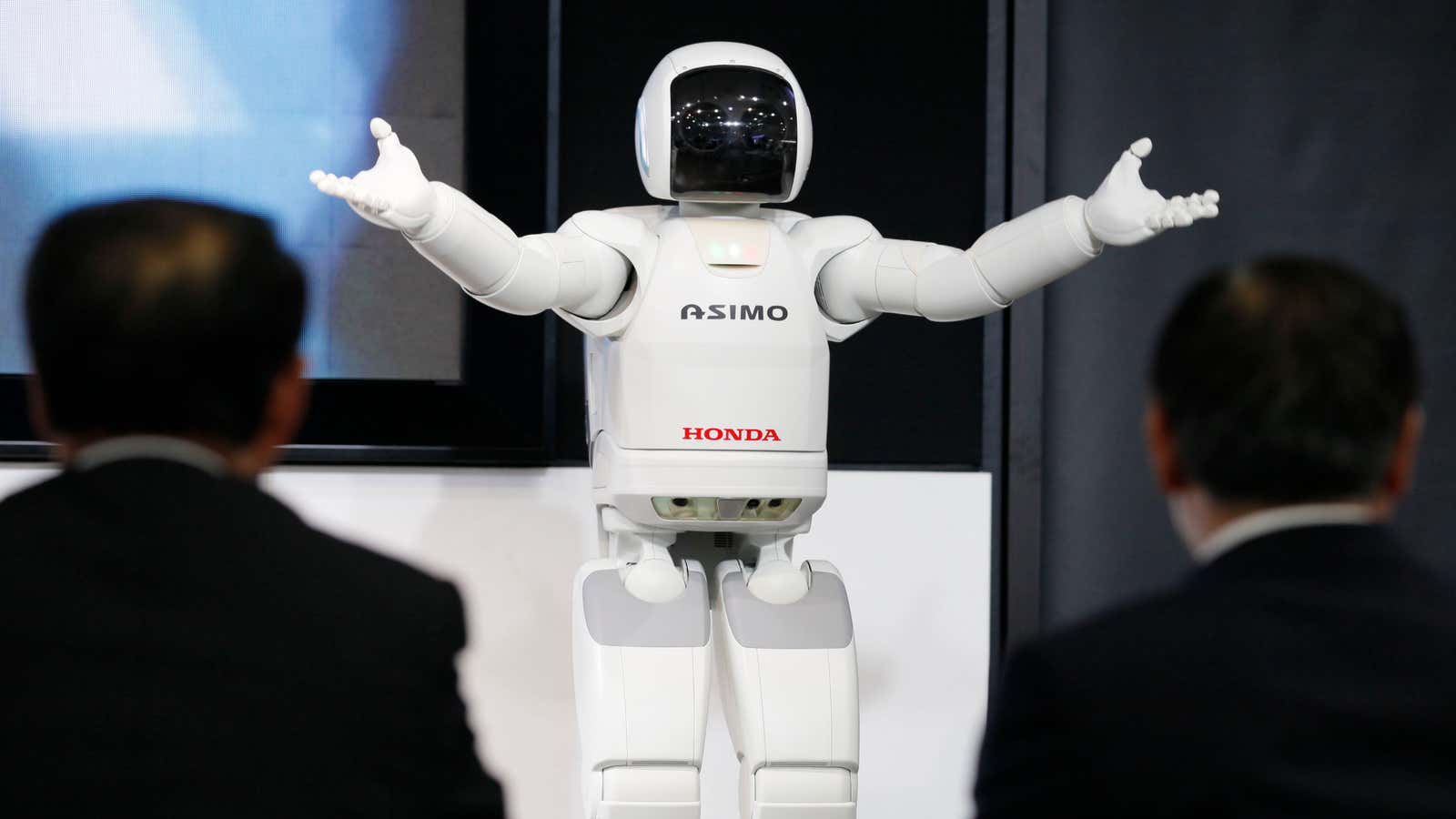For three decades, wages have evaporated as a share of the economy. Meanwhile, the proportion of national income consumed by profits, dividends, and capital gains has steadily grown. Capital 1, Labor 0.
So it’s a bad time to be a working stiff in the U.S. But it turns out that this isn’t just an American story. A pair of economists at the University of Chicago’s Booth School of Business, Loukas Karabarbounis and Brent Neiman, are out with a new working paper showing that just as the rise of income inequality has been a global phenomenon, so too has been the fall of labor. Building off their previous research on the topic, the pair compiled data for 56 countries and found that worldwide, workers’ share of GDP had fallen roughly five percentage points since the 1980s.
That pattern didn’t hold true in every single country, but it was constant in each of the world’s largest economies: the U.S., Japan, China, and Germany.
So why are workers seeing their slice of the pie shrink? Blame robots, say Neiman and Karabarbounis. Specifically, cheap robots (or, if you’d prefer, cheap PCs, cheap industrial machinery, and cheap technology on the whole). As the digital revolution started unfolding in earnest during the 1980s, the cost of computing power fell precipitously. As a result, the pair suggest that companies began investing in high-tech equipment instead of comparatively inefficient and expensive employees. To oversimplify just a bit: Robots really have been taking our jobs, or at least our raises.
What’s the proof? The chart below. As it turns out, the cost of capital goods* hasn’t dropped equally across the world thanks variations in trade policy, taxes and the like. As a result, Neiman and Karabarbounis were able to compare the changing cost of business investment in each country they examined to labor’s changing share of the national economy. With some exceptions, in places where the cost of capital goods dropped, so too did labor’s cut of national income. In countries where capital goods became more expensive, labor’s share rose.
Neiman and Karabarbounis are not by any means the first economists to suggest that workers could be losing out to technology. MIT economists Erik Brynjolfsson and Andrew McAfee have argued that idea at length in their book Race Against the Machine. Paul Krugman endorsed it in a widely discussed column. What makes this paper most interesting is it quantifies the change on a global scale. The technology boom, the researchers argue, explains about half the drop in labor’s share of the world’s economy.
That’s great for stockholders. It’s great for consumers, who get better, cheaper products. It might even be great for workers with the skills to thrive in today’s labor market. But it means we also need to think of ways to take care of the casualties of our high-tech economy. These changes, after all, aren’t going away.
Jordan Weissmann is an associate editor at The Atlantic. He has written for a number of publications, including The Washington Post and The National Law Journal.
This originally appeared at The Atlantic. More from our sister site:
One billion year-old water tastes terrible
